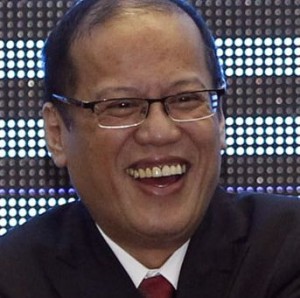PHNOM PENH—In a message unmistakably directed at China, President Aquino on Monday told other Southeast Asian leaders gathered here that economic pressure should not be used to resolve worsening territorial disputes in the West Philippine Sea (South China Sea).
Addressing other heads of the Association of Southeast Asian Nations (Asean) at the 15th Asean-Japan Summit, one of the side meetings at the 21st Asean Summit, Mr. Aquino said negotiations to solve territorial disputes in the region must be founded on the rule of law, not economic coercion.
“We must all work to ensure that mechanisms are in place, and are utilized to resolve tensions; that economic pressure, which can sometimes be perceived as coercive, is not used as an approach to settle disputes,” he said.
Mr. Aquino was clearly alluding to what some analysts had described as China’s “coercive economic diplomacy” involving weaker nations in staking its claim to virtually the entire West Philippine Sea.
As Chinese and Philippine ships faced off with each other at Panatag Shoal (Scarborough Shoal) in the West Philippine Sea earlier this year, China began to impose stringent quarantine requirements on Philippine fruit.
Some commentators called the episode the “Banana War” between the two countries, as the fruit involved was banana from Mindanao in the southern Philippines.
Chinese travel agencies also suspended tourism to the Philippines. But the tactic failed because China was only a minor tourist market for the Philippines.
In his statement, Mr. Aquino first praised Japan, another country rowing with China over a group of islands in the East China Sea, for rebuilding itself “from the ashes of war” in only the span of a few generations.
“As our shared experience might show, growth begins— and is sustained—by ensuring that rules are clearly articulated and followed. This is the same principle that will redound to our communal benefit in the conduct of interstate relations,” he said.
Aquino then proceeded to assert the Philippine position that all the parties with claims in the West Philippine Sea must respect the United Nations Convention on the Law of the Sea (Unclos), which conflicted with China’s “nine-dash claim” over the area.
“The rule of law, such as that enshrined in the Unclos, must therefore be the bedrock of engagement with other members of the community of nations,” he said.
The Philippines, Aquino added, “will continue to uphold this principle in its engagement with Asean, Japan, and other stakeholders, as the region strives to resolve overlapping maritime claims.”
The UNCLOS sets the exclusive economic zone (EEZ) to up to 200 nautical miles from the coast in which states have the right to explore and exploit natural resources but allow freedom of navigation and overflight to others.
The Philippines has bickered with China over certain isles and reefs in the vicinity of the Spratly chain, as well as over the Scarborough shoal, that fall within the former’s EEZ and conflict with the latter’s nine-dash claim.
The nine-dash claim is China’s delineation of its territory in the South China Sea, with nine dashes on the map that enclose all of the Spratly group of islands, parts of which are claimed by the Philippines, Brunei, Malaysia, Vietnam and Taiwan.
The Philippines has filed a protest with the United Nations challenging China’s nine-dash claim that encompasses the whole West Philippine Sea. Scarborough Shoal lies north of the Spratlys, 120 kilometers off Zambales province on the western coast of Luzon.
The West Philippine Sea is home to some of the world’s most important shipping lanes and believed to sit atop vast natural resources, a potential military flash point.
The maritime tensions are expected to dominate talks here among Asean leaders and regional partners, including US President Barack Obama and Chinese Premier Wen Jiabao.
Asean groups Brunei, Burma (Myanmar), Cambodia, Indonesia, Laos, Malaysia, the Philippines, Singapore, Thailand and Vietnam.
Originally posted: 4:12 pm | Monday, November 19th, 2012
